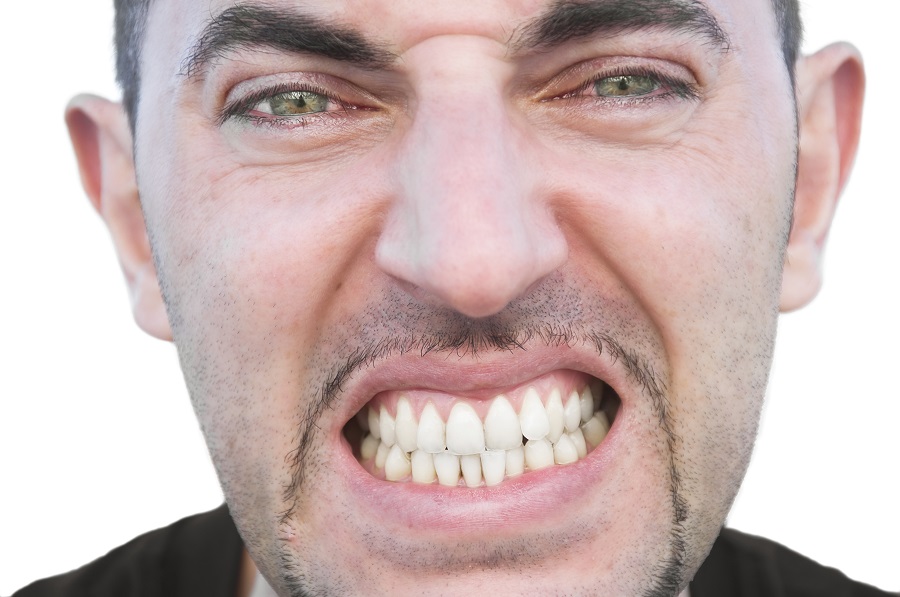Grinding and Clenching Teeth - The Harmful Effects
 Most people clench and grind their teeth once in a while -especially when they are under stress. As long as it is infrequent and of short duration, it usually is harmless. However, if the problem is chronic - meaning that it is severe and frequent or constant, it often results in damaged teeth and jaw disorders. This condition is known as Bruxism.
Most people clench and grind their teeth once in a while -especially when they are under stress. As long as it is infrequent and of short duration, it usually is harmless. However, if the problem is chronic - meaning that it is severe and frequent or constant, it often results in damaged teeth and jaw disorders. This condition is known as Bruxism.
BRUXISM
Bruxism is of 2 types - sleep Bruxism if it happens while a person is an asleep and awake Bruxism if it happens while awake. In both cases, it is an unconscious action that a person is not aware of doing. Bruxism is common in children, and it is one that they often grow out of. However,it is not something that should be ignored as being apart of the growth process. At whatever age it is noticed, a dental examination to confirm the disorder's existence and decide on the treatment required is essential.
BRUXISM DAMAGE
Bruxism can damage the teeth, stress, and damage to the jawbones, muscles, and headaches. Regular checkups for Bruxism are essential because a person suffering from this condition may not be aware of it until the pain and damage that it causes make it too much to overlook. Uneven wear of the teeth will require cosmetic procedures such as veneers. Untreated Bruxism will wear away the enamel on the teeth leading to irregular and excessive wear, cracking, and chipping. Once the enamel is reduced, the risk of cavities increases. Excessive wear will result in crowns, which will also become damaged if the Bruxism is not treated.
TREATMENT FOR BRUXISM
The primary treatment for Bruxism is dental. This includes:
• Using mouth guards and splints which are designed to keep the teeth separated so that they cannot be clenched or ground together. These are made of acrylic or other materials and fit over the upper and lower teeth.
• If the damage is so much the teeth are sensitive and chewing, and consumption of hot or cold solids and liquids is painful, then corrective procedures will need to be applied. This may include repairing the teeth or using crowns to repair the damage.
Along with the dental procedures to treat the problem, a dentist may prescribe other courses of action to eliminate the problem's root cause. These could include:
• Behavioral changes such as practicing maintaining the correct mouth and jaw positions. Over time this could lead to the disappearance of the condition.
• Using muscle relaxants before going to sleep to control sleep bruxism.
• Diagnosing and treating any sleep-related disorders that are causing clenching and grinding.
• Botox injections to stop the muscle movements that cause clenching and grinding.
• Stress and anxiety relief either through mediation or other techniques with the use of medication.
Bruxism can develop slowly and may not be noticed until the damage is so severe that it cannot be overlooked or the disorder results in pain. The earlierBruxism is detected and brought under control, the less the damage and the lower the possible need for dental procedures to correct the damage. Regular dental checkups are the best way to deal with Bruxism. If you suspect that a family member is suffering from this condition, consult a dentist without delay to confirm the condition and begin treatment.
- Dec 26, 2020
